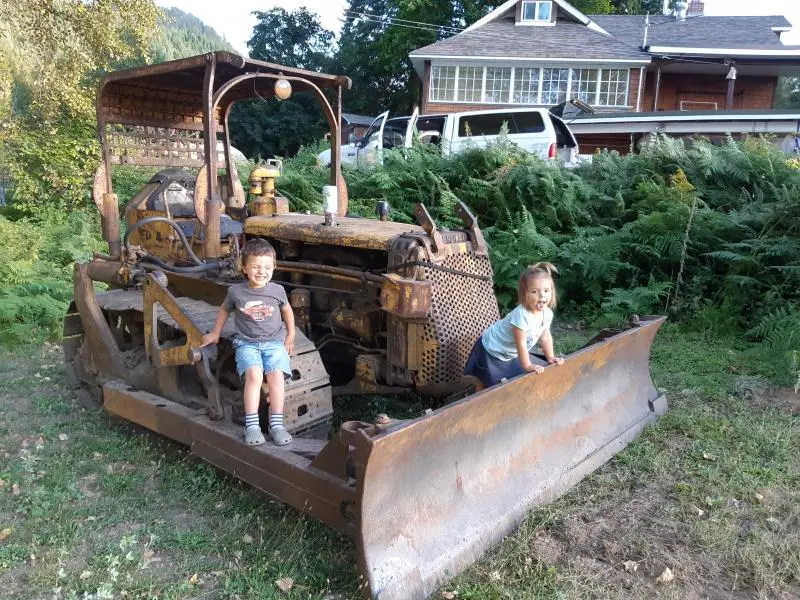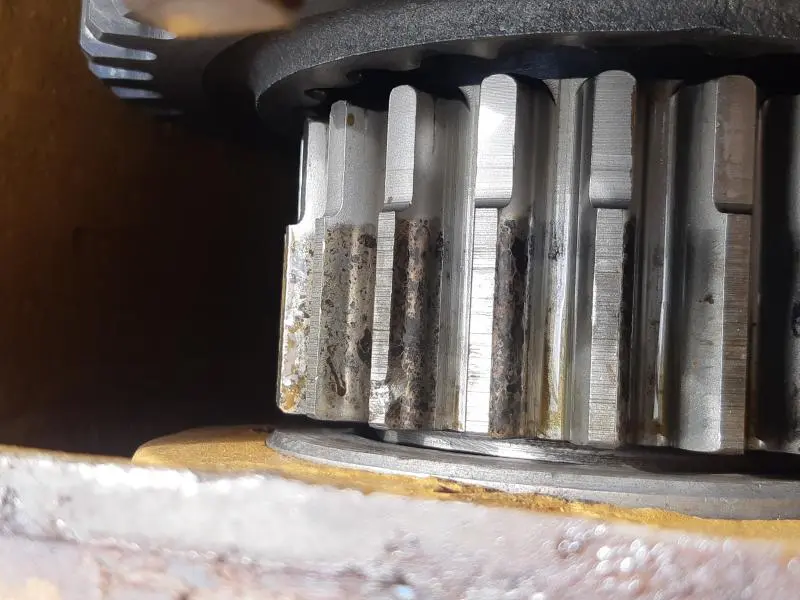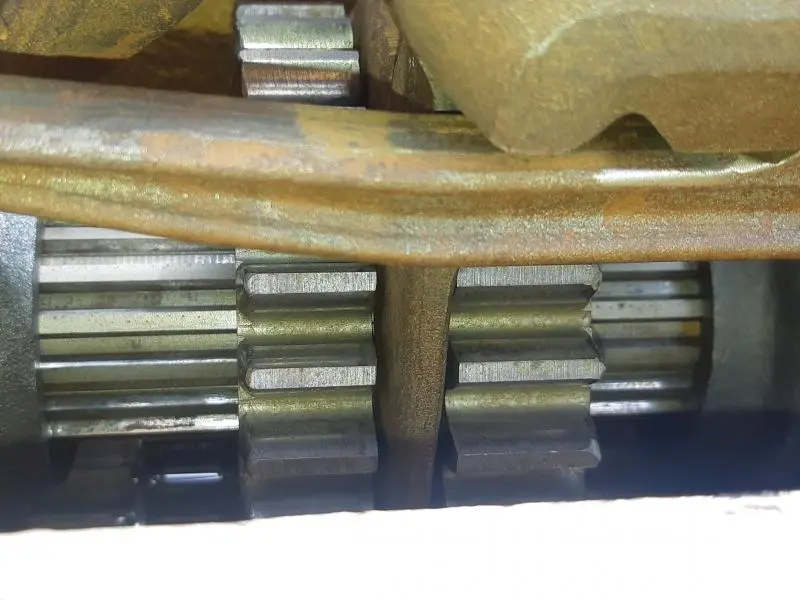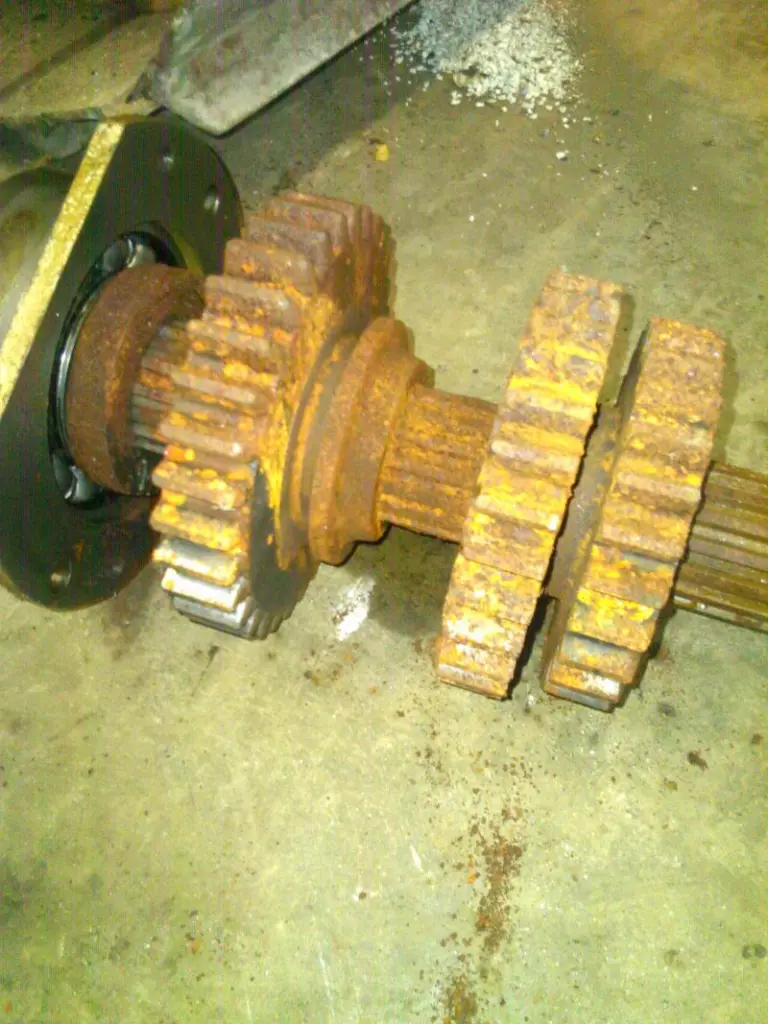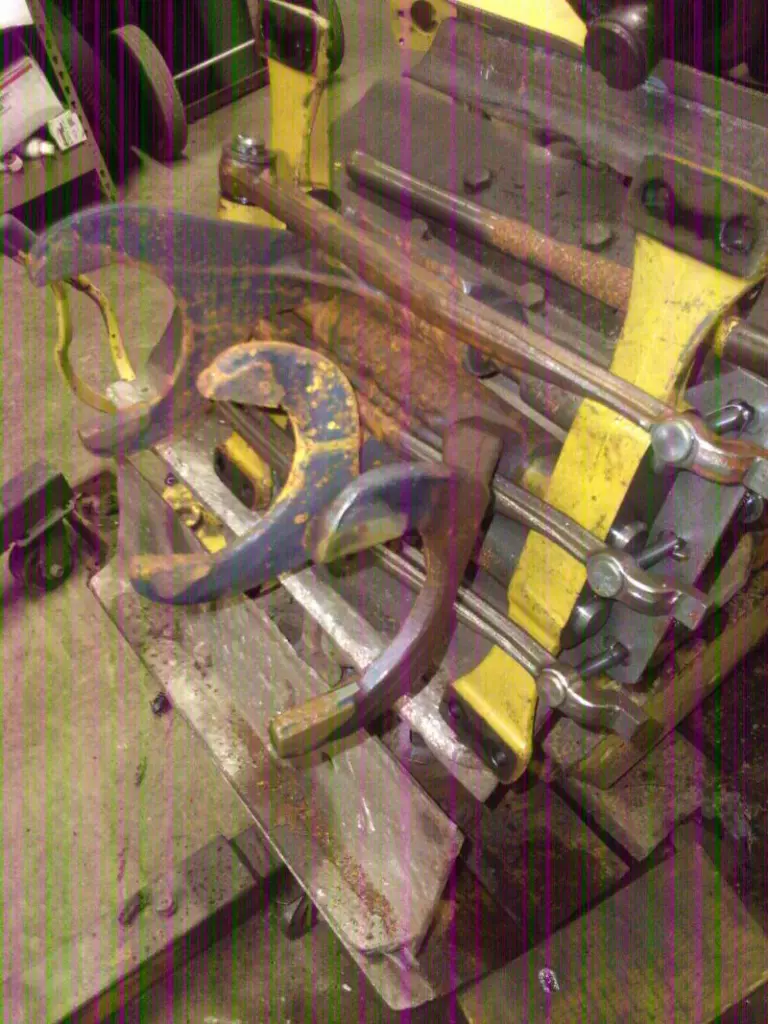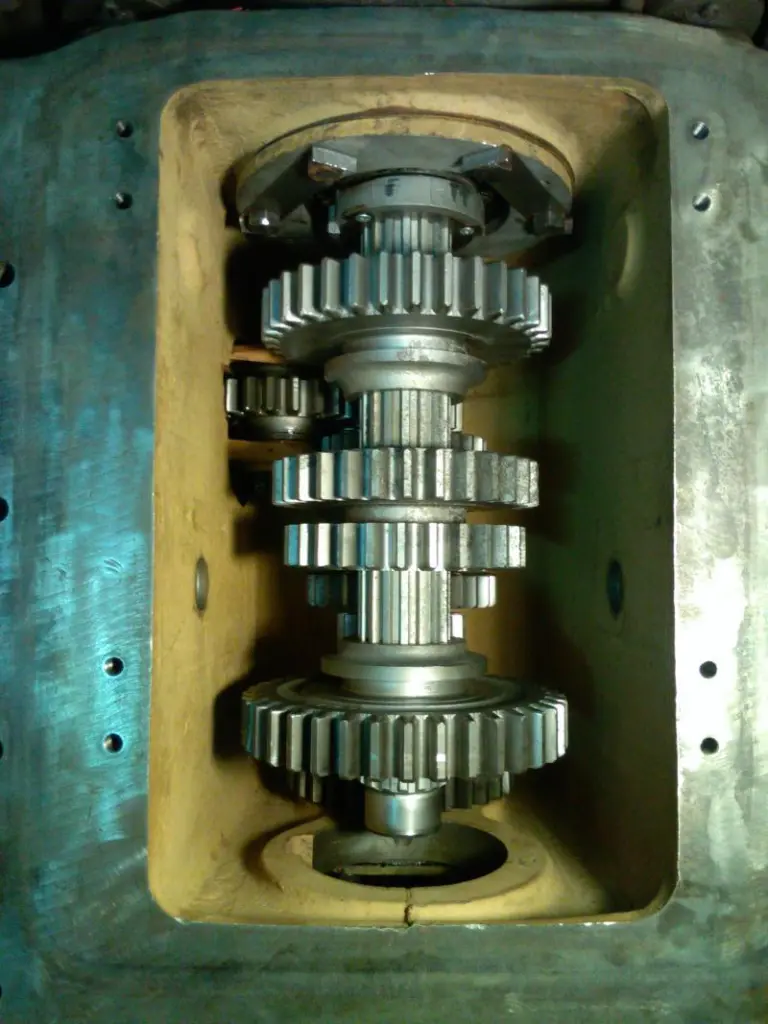Reply to Mike Meyer:
The experts will chime in on that water damage, I'd put the top back on, use some gasket sealant on the old cork tranny gasket if it is not badly damaged, fresh oil, adjust everything and drive her.
From my experience of pulling old Cats down that won't ever do a lot of work ever again, is you find yourself going further and further replacing parts that probably don't need replacing, and what started out as a easy 6 hour job pulling the tranny cover off for a look see, becomes a 6 month drawn out drama pulling tranny shafts and final drives to replace all the bearings and seals, a big cost in $$$$, and a big job time wise that requires more than basic tools.
You have a young family, and on a tight budget, if something breaks at a later date, fix it, but in the meantime get her running and working on your jobs, they were well engineered in their day, some would say over engineered, that's why they are still running 80 years later, I've rebuilt a D4 7J tranny and they share many tranny parts with the 7U.
Same advice goes for the pilot motor, keep it simple right now, if the crankshaft bearings are within spec then I'd suggest just pulling the heads off to check the valve seats, de-coke the combustion chamber and to check the cooling passages, rodding them out if necessary, look very closely at the head cooling passages for blockage too, use some thick fencing wire to access all the nooks and crannies in the block and heads, have water trickling into the radiator as you do it to carry any trash out of the pilot motor, using a old speedo cable in a drill works well for cleaning them too, you can do this job in a couple of hours.
Keep it simple right now, or you will end up spending the whole summer working on that D4.
Good luck
Mike
[quote="Mike Meyer"]The experts will chime in on that water damage, I'd put the top back on, use some gasket sealant on the old cork tranny gasket if it is not badly damaged, fresh oil, adjust everything and drive her.
From my experience of pulling old Cats down that won't ever do a lot of work ever again, is you find yourself going further and further replacing parts that probably don't need replacing, and what started out as a easy 6 hour job pulling the tranny cover off for a look see, becomes a 6 month drawn out drama pulling tranny shafts and final drives to replace all the bearings and seals, a big cost in $$$$, and a big job time wise that requires more than basic tools.
You have a young family, and on a tight budget, if something breaks at a later date, fix it, but in the meantime get her running and working on your jobs, they were well engineered in their day, some would say over engineered, that's why they are still running 80 years later, I've rebuilt a D4 7J tranny and they share many tranny parts with the 7U.
Same advice goes for the pilot motor, keep it simple right now, if the crankshaft bearings are within spec then I'd suggest just pulling the heads off to check the valve seats, de-coke the combustion chamber and to check the cooling passages, rodding them out if necessary, look very closely at the head cooling passages for blockage too, use some thick fencing wire to access all the nooks and crannies in the block and heads, have water trickling into the radiator as you do it to carry any trash out of the pilot motor, using a old speedo cable in a drill works well for cleaning them too, you can do this job in a couple of hours.
Keep it simple right now, or you will end up spending the whole summer working on that D4.
Good luck
Mike[/quote]
Good luck Mangoman, but heed Mikes advice. You may have mentioned it but is the machine running? Mike has a good perspective as his projects appear to be pretty lean on equipment and shelter but makes up for those using ingenuity and grit.
Anyway, I suggest you make sure you have Operators Instructions Manual; relevant Parts Book(s); Serviceman’s Reference. A few guys on here have manuals for sale as does eBay etc. I’ve seen multiple parts books with slightly different drawings and info fir same S/N so keep your eyes open for those. Out of range serial numbered books can also be useful so you can track various changes from machine to machine. The manuals will save many times the money on your first project.
Hopeful this machine has some affiliation to your grandpa-nice machine.
Best and have fun!
Bernie
